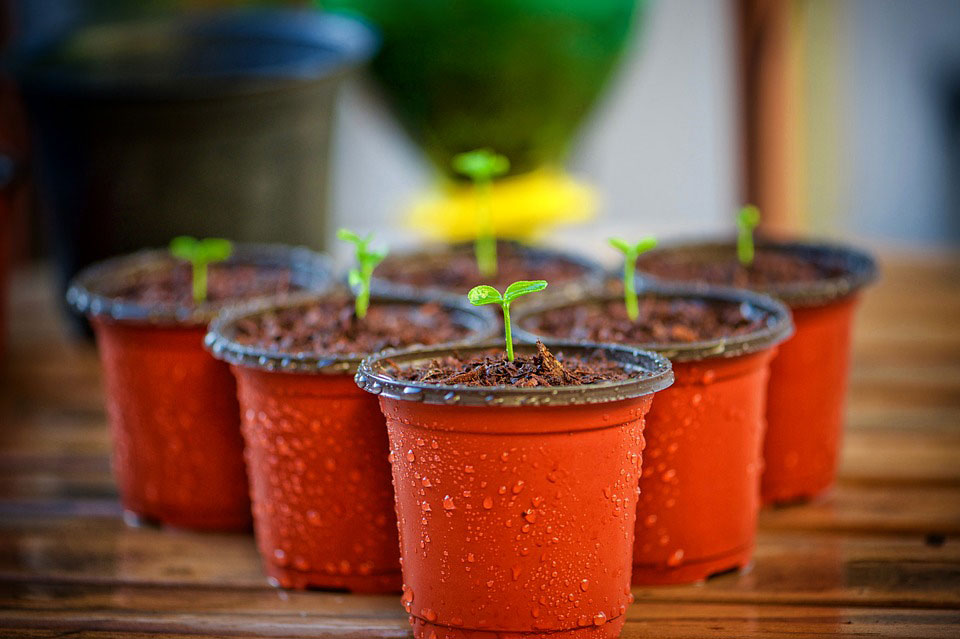As someone who suffers from fibromyalgia, gardening has been a lifesaver for Maria Cannon. It has allowed her to work through the depression and anxiety she has had about her chronic illness, in addition to providing her with the type of physical activity that has proven to be highly therapeutic. This is what she has to say.
Grow Away Depression
By Maria Cannon
Say goodbye to feelings of sadness and anxiety by working your very own seasonal garden. Here's the how and why.
Start small
If you've never planted a garden before, you'll want to start small. A small plot of land is plenty of space to get you started. One of the most common mistakes that novice gardeners make is planting more than they actually need or want. Don't get overzealous; being proud of yourself for a successful small garden will do wonders for your mental health, whereas feeling frustrated over the failure of a large garden may exacerbate stress and anxiety.
Set yourself up for success
First, choose a location that gets at least six hours of sunlight every day. More sunlight equals healthier plants and a more bountiful harvest. As an added benefit, the sun helps the body produce serotonin and vitamin D, both of which are vital for mental and physical health. Make sure to use good soil, which also contains microorganisms (bacteria) that, when in contact with your skin, can further boost serotonin. Good soil is essential for your plants, as is proper drainage. Do your research and don't use cheap dime store seeds, which may be left over from prior planting season. These are unlikely to offer the productive results your mind and body crave. A few extra cents spent in the spring will mean a more positive gardening experience throughout the summer and into the fall.
Sowing for sanity
Sowing a garden is the physical act of perking the land and putting seeds in the ground. You can also use live plants, but seeds are typically less expensive and you can watch them grow from the time they germinate, which may give you a closer connection to your garden. Your first garden plot should be no larger than 16' x 10' with rows running north to south in order to take full advantage of the sunshine. There are a number of easy vegetables to grow that offer a dose of depression-ditching nutrition. Tomatoes, for example, contain a high concentration of both beta-carotene and lycopene, carotenoids that provide antioxidants to safeguard the body's healthy fat stores. The brain is made up largely of fat, so colorful fruits and vegetables are essential for brain health. Leafy greens, along with peppers, cabbage, and squash, are also easy to grow and offer a host of nutritional benefits.
Recent studies suggest that 8 out of 10 gardeners are content with their lives; more than 9 out of 10 directly link their time in the garden to their mood. Being outside in the fresh air and in touch with nature can do wonders for your mental health. Getting our hands dirty and breathing in fresh air helps us to connect to nature, which is a mood enhancer all on its own. There is something about tranquility that is therpeutic, especially for people who spend the majority of their time trudging through a concrete jungle for work each day. According to Prof. Jules Pretty of the University of Essex, green spaces are simply good for personal health and that, despite a less-than-lengthy growing season, short-term mental health improvements provided by gardening are essential to long-term overall well-being.
Digging in the dirt offers a physical outlet for pent-up stress. Hoeing, raking, and pulling weeds are cathartic and may help us symbolically purge our negative thoughts and emotions. The physical activity associated with gardening will help release energy and will lead to better sleep. Insomnia and other sleep disorders are strongly linked to depression and other mental health issues.
Of course, not everyone is in a position to start a garden. Whether it's space or time, some people can't have a garden. But you can still have plants and flowers in your home. A few houseplants can do wonders for the home environment, and fresh-cut flowers can be just the trick for brightening a room and a mood. Research has shown that flowers have improved the recovery of patients in hospitals and have significantly improved a diner's experience at a restaurant when flowers were placed on the table. The benefits don't stop there. The scent of florals also has a way of taking the edge off, as proven by the massive industry of scented candles. When you're at a flower market, the colors of the flowers you select can greatly enhance your mood. Brighter, less saturated colors provide a sense of relaxation while boldly saturated colors can energize you. Nancy Etcoff, Ph.D, of Massachusettes General Hospital and Harvard Medical School found that "people who live with flowers report fewer episodes of anxiety and depressed-feelings." Etcoff, a psychologist, found that positive moods provided by flowers can be contagious, which is coined by the term "mood contagion."
In summary, planting your first garden or brightening your environment with flowers is an easy and inexpensive way to combat stress, enhance your quality of life, and stave off depression through physical interation with the world around you.
